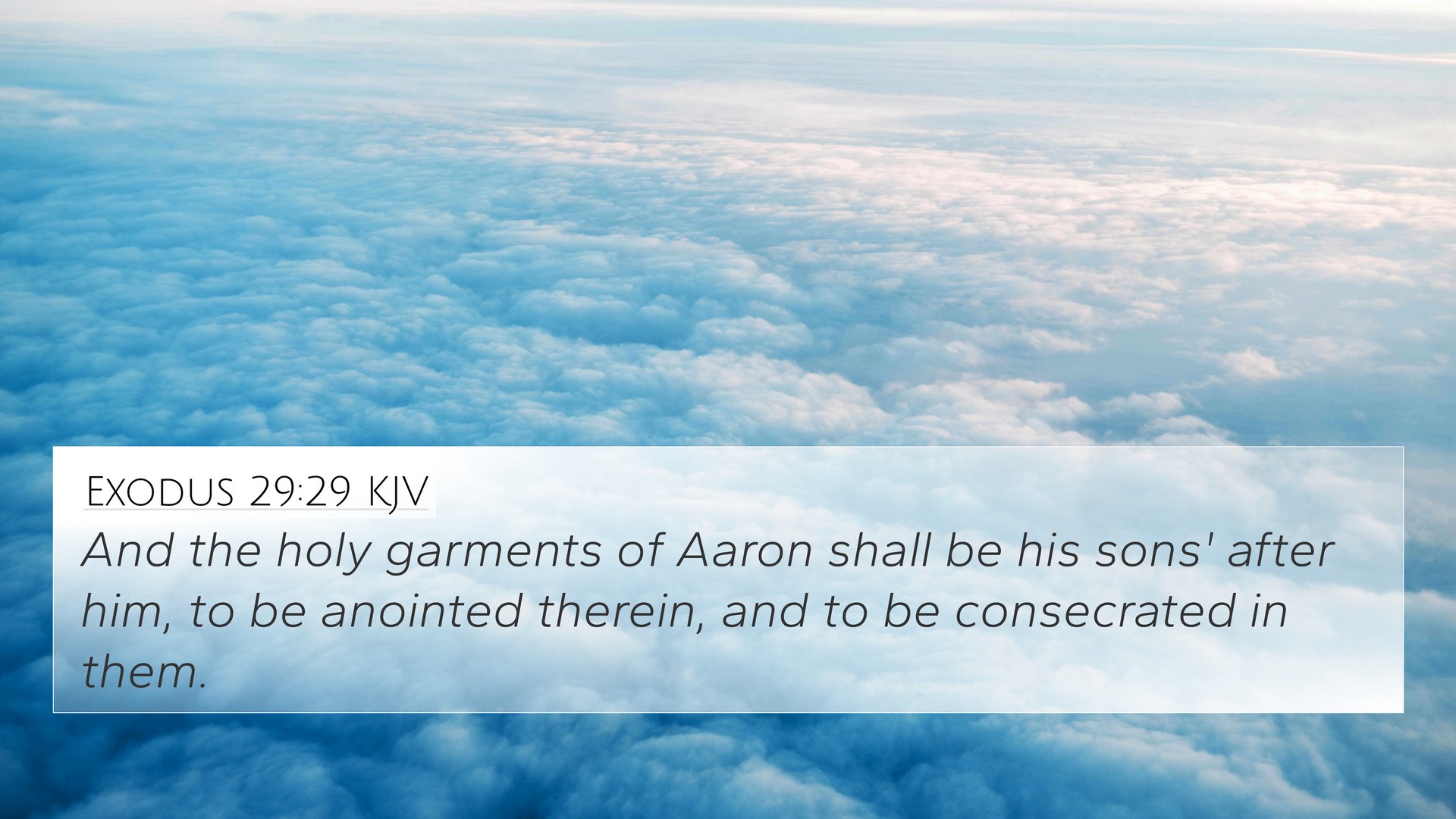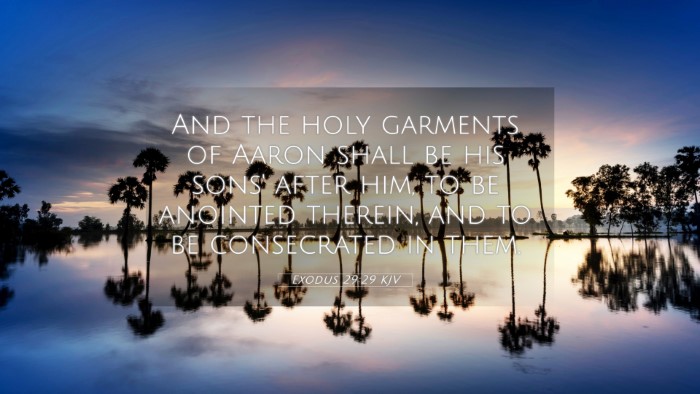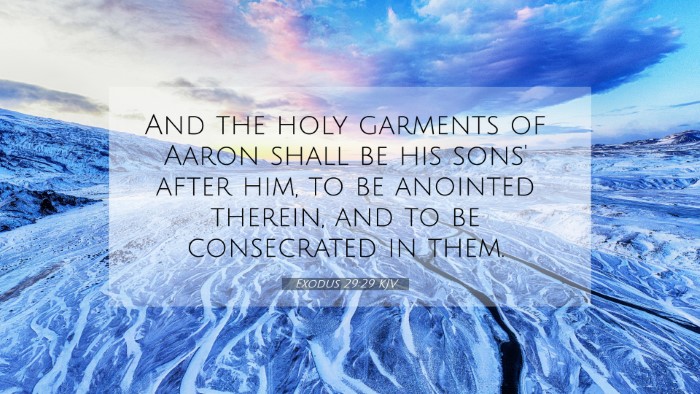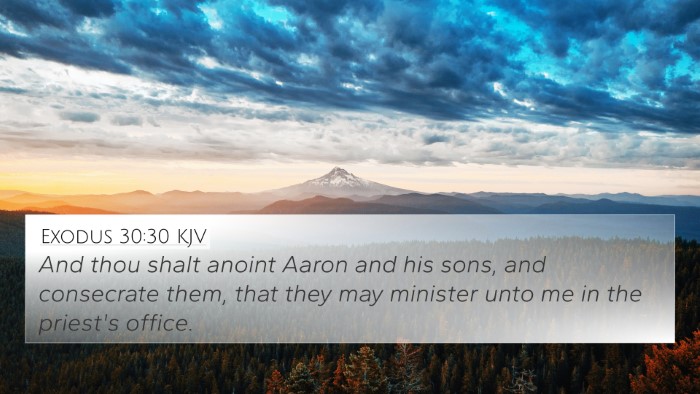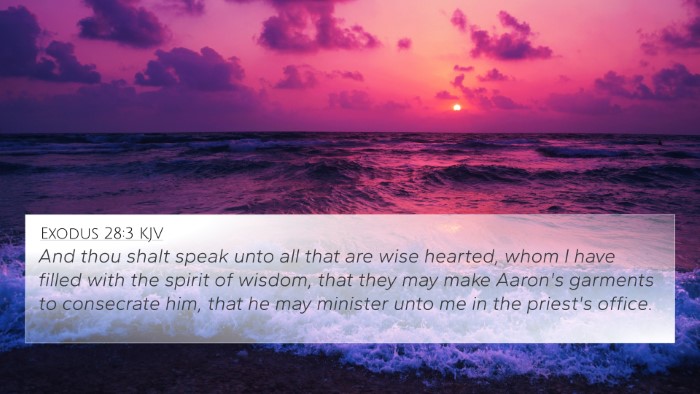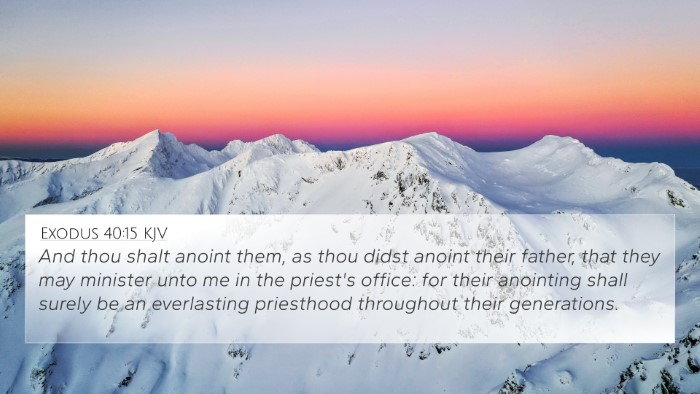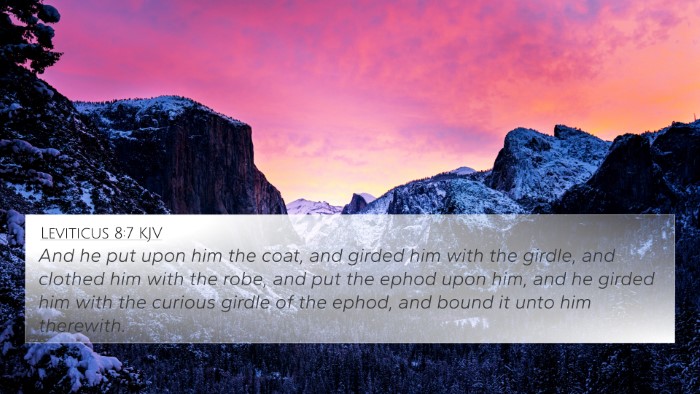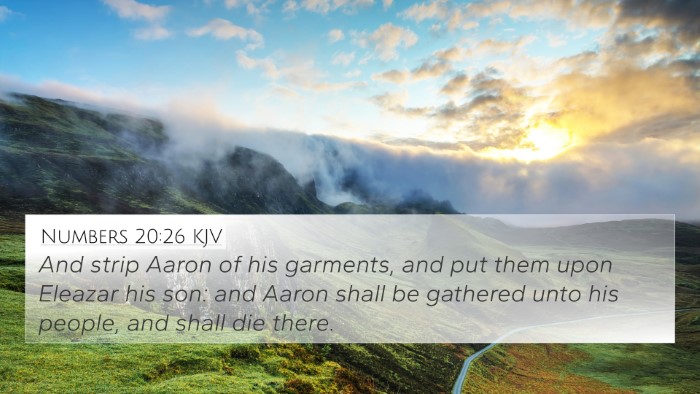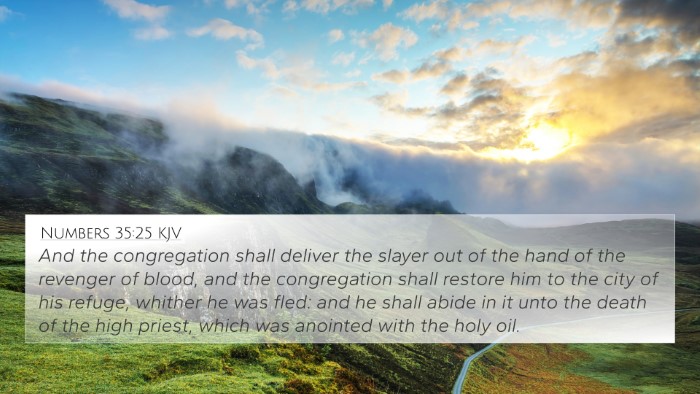Understanding Exodus 29:29
The verse Exodus 29:29 states: "And the holy garments of Aaron shall be his sons' after him, to be anointed therein and to be consecrated in them." This verse speaks to the continuation of the sacred duties within the priestly lineage of Aaron, emphasizing the importance of the ordination and the garments they wear during their service to God.
Commentary Insights
Exodus 29:29 situates itself within a broader context of Levitical duties and significances as highlighted by various public domain commentaries:
- Matthew Henry: Henry emphasizes that the priestly garments are not merely clothing, but are deeply symbolic of God's appointed and holy calling. The passing down of these garments underscores the continuity of God's covenant and the consecration of Aaron's lineage as a central theme in priestly duties.
- Albert Barnes: Barnes remarks that the garments are a sign of authority and responsibility in spiritual leadership. The reference to Aaron’s sons inheriting these garments indicates the importance of lineage in the exercise of priestly duties and the expectation that they will continue the sacred traditions established by their father.
- Adam Clarke: Clarke discusses the garments in detail, considering them as tools for atonement and connection to the divine. He highlights the necessity of these garments for divine service, reminding readers of the seriousness with which God views priestly functions, and the requirement of ceremonial purity and holy vestments.
Thematic Analysis and Connections
This verse is rich in thematic connections, particularly regarding:
- The continuity of holiness evident through the ceremonial garments.
- The importance of lineage in fulfilling God's commandments.
- The sacredness of duties assigned within the community of Israel.
- The role of clothing as a symbol of one's divine calling and identity.
Bible Verse Cross-References
Exodus 29:29 connects with several other verses within Scripture, reinforcing the themes of priesthood, consecration, and service. Here are some correlating verses:
- Exodus 28:1 - "And take thou unto thee Aaron thy brother, and his sons with him, from among the children of Israel, that he may minister unto me in the priest's office."
- Leviticus 10:6 - "And Moses said unto Aaron, and unto his sons Eleazar and Ithamar, Uncover not your heads, neither rend your clothes; lest ye die, and lest wrath come upon all the people."
- Hebrews 5:4 - "And no man taketh this honour unto himself, but he that is called of God, as was Aaron."
- 1 Peter 2:9 - "But ye are a chosen generation, a royal priesthood, an holy nation, a peculiar people."
- Exodus 28:38 - "And it shall be on Aaron's forehead, that Aaron may bear the iniquity of the holy things, which the children of Israel shall hallow in all their holy gifts."
- Numbers 20:26 - "And strip Aaron of his garments, and put them upon Eleazar his son..."
- Revelation 1:6 - "And hath made us kings and priests unto God and his Father; to him be glory and dominion for ever and ever. Amen."
Inter-Biblical Dialogue
This passage highlights the intricate connections within the biblical narrative and encourages a deeper study into:
- The connections between Old and New Testament priesthood as seen in the book of Hebrews.
- The leadership qualities of Aaron as a type of Christ, the ultimate High Priest.
- The priestly themes in the Psalms, which often underline the qualities of righteousness and divine connection.
As you explore these biblical themes, consider utilizing tools for Bible cross-referencing or a Bible concordance to unravel deeper insights and find connections between Bible verses.
Conclusion
Exodus 29:29 enriches our understanding of God’s instructions for priestly duties and the significance of maintaining holiness through sacramental traditions. It invites readers to partake in the ‘inter-Biblical dialogue’ where we see consistent themes emerge, fostering a comprehensive Bible cross-reference system for enriched understanding.
